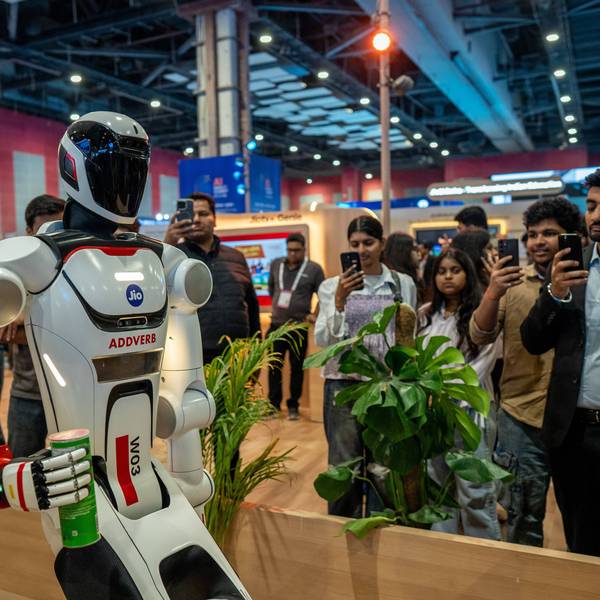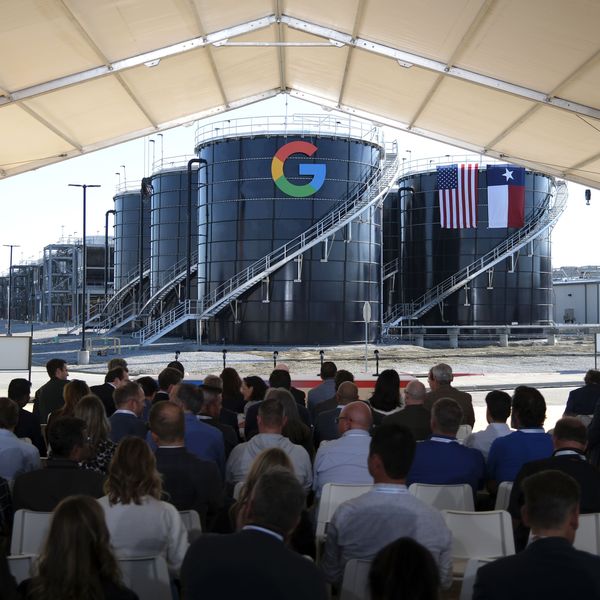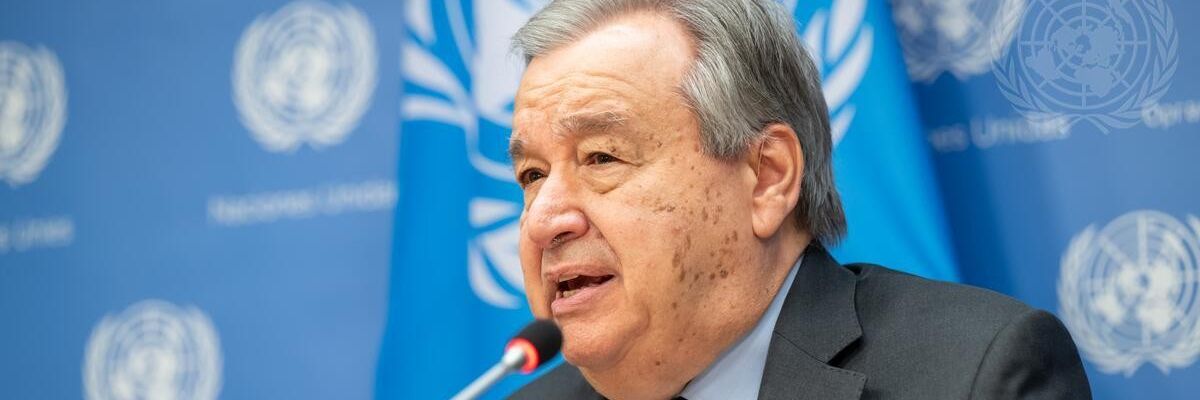United Nations Secretary-General António Guterres on Thursday recognized the risks of artificial intelligence while stressing that "AI also has the potential for enormous good" if managed properly with safeguards in place.
His comments came in a video welcome message played at the AI for Good Global Summit, a two-day event in Geneva convened by the International Telecommunication Union (ITU) in partnership with dozens of other U.N. agencies and the Swiss government.
The aim of the summit, according to organizers, is "promoting AI to advance health, climate, gender, inclusive prosperity, sustainable infrastructure, and other global development priorities."
"AI must benefit everyone, including the one-third of humanity who are still offline."
Guterres' new remarks partly echoed his June speech prompted by the publication of a policy brief for the U.N. Code of Conduct for Information Integrity on Digital Platforms being developed ahead of next year's Summit of the Future.
"Tech leaders and experts are warning of the potential dangers of AI, from the development and use of autonomous lethal weapons, to turbocharging mis- and disinformation that undermine democracy," he noted Thursday.
Scientists and policymakers have sounded the alarm about everything from harm to patients from experimental AI use in medical treatment to impacts on political elections due to deepfakes. One recently circulated joint statement argues that "mitigating the risk of extinction from AI should be a global priority alongside other societal-scale risks such as pandemics and nuclear war."
Guterres made the case that while there are major risks, AI can help the global community make progress on the 17 sweeping sustainable development goals (SDGs) for 2030 that U.N. member states adopted in 2015. Goals include ending poverty and hunger, achieving gender equality, ensuring access to affordable clean energy, and taking urgent action on the climate emergency.
AI could help with the SDGs "by making a massive leap in healthcare and eradicating diseases that affect millions" as well as "by transforming education and empowering people everywhere to build a better future," he explained, urging humanity to "spare no effort to harness the power of AI for good."
The U.N. chief said he expects the ongoing event to "explore practical applications of AI" to advance the SDGs, which will complement the work of an advisory body he plans to establish as well as the Global Digital Compact and preparations for next year's summit.
Guterres emphasized the "joint responsibility of governments, the private sector, United Nations agencies, academia, and others to ensure AI reaches its full potential—while preventing and mitigating harms."
"AI must benefit everyone, including the one-third of humanity who are still offline. Human rights, transparency, and accountability must light the way," he said. "We must urgently find consensus around essential guardrails to govern the development and deployment of AI for the good of all."
ITU Secretary-General Doreen Bogdan-Martin similarly said Thursday that this is a "critical and historic moment" in which the world must "better understand what kind of regulations and guardrails we need to put in place today for the development and deployment of inclusive, safe, and responsible AI."
"As we look to the future, we face three possible scenarios. In the first one, AI lives up to its promise," she said. "In the second scenario, we fall short of harnessing AI's potential for sustainable development... In the third scenario, AI makes breakthroughs in healthcare, energy, education, and other key areas possible. But wealthier countries are the ones who are reaping the benefits."
"We know that AI development will not wait, that the SDGs will not wait, and that failure is not an option," Bogdan-Martin added. "The era of generative AI is just beginning, and its future has yet to be written. I choose the scenario where AI lives up to its promise—where we stand for the SDGs and digital equality. Which one will you choose?"




